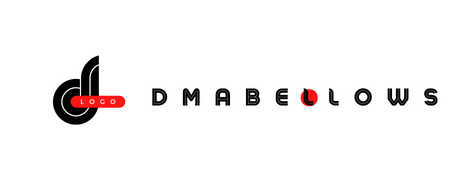Essential veterinary checks for horses: what you need to know
Owning a horse is a long-term commitment that demands diligence, especially regarding health maintenance. Routine veterinary checks ensure your horse remains healthy and happy, significantly impacting their quality of life. From crucial vaccinations to in-depth behavioral evaluations, understanding these essential assessments is vital for every horse owner. Explore how comprehensive veterinary care contributes to safeguarding your investment and enhancing the bond with your equine companion.
Importance of Veterinary Checks for Horses
Routine veterinary checks are vital for maintaining horse health and ensuring their overall well-being. These examinations allow for the early identification of health issues, which can prevent the development of more serious conditions. For example, a regular evaluation may reveal signs of lameness or dental issues, prompting immediate treatment and avoiding further complications. By conducting thorough and consistent check-ups, horse owners can secure a longer, healthier lifespan for their equine companions, maximizing their performance and quality of life.
En parallèle : What Are the Trends Shaping the Future of Electric Vehicle Charging Stations in the UK?
When you schedule a veterinary check for horses, it not only safeguards their immediate health but also forestalls potential long-term problems. These assessments typically include equine dental care, vaccination updates, and physical examinations, ensuring all aspects of the horse's health are evaluated. The use of advanced diagnostic tools, such as x-rays and ultrasounds, assists veterinarians in detecting conditions that might not be apparent during a standard examination.
By embracing preventive care and regular monitoring, horse owners demonstrate their commitment to animal welfare. This proactive approach often leads to reduced veterinary costs over time, as minor health issues are managed before escalating into more severe, expensive problems.
A lire en complément : What Are the Innovative Ways to Improve Air Quality in UK Coworking Spaces?
Types of Veterinary Checks
Routine Health Assessments
Routine equine health assessments are integral to maintaining your horse's well-being. Regular check-ups, typically conducted annually, monitor vital signs and physical conditions. A veterinarian will evaluate body condition score, coat health, and observe any signs of illness. Parasite control is also a key aspect, often involving fecal tests to guide worming schedules and prevent infestation.
Comprehensive Physical Examinations
Comprehensive physical examinations for horses offer more detailed insights. These checks include thorough evaluation from head to hoof, assessing joints, muscles, and internal organs. Diagnostics like ultrasounds or x-rays provide further clarity, especially when symptoms suggest deeper issues. Vets may also perform gait analysis to detect subtle lameness or movement irregularities, crucial for performance and working horses.
Specific Procedures such as Vaccinations and Dental Care
Specific procedures, including vaccinations and dental care, are vital components of equine health management. Vaccinations protect against diseases like tetanus and equine influenza. Dental examinations are advised biannually, as dental issues can significantly impact nutrition and weight maintenance. Additionally, maintaining a horse vaccination schedule is crucial, ensuring timely boosters to sustain immunity.
Preparing for a Veterinary Check
Steps to Ensure a Smooth Vet Visit
Before your horse undergoes a veterinary examination, it is vital to prepare both yourself and the animal. Ensure your horse is well-groomed and free from debris for a thorough inspection. Familiarize your horse with vet tools like stethoscopes and thermometers to reduce anxiety during the visit. Organize your horse's health records and vaccination schedules for quick reference. Be aware of common health issues identified during checks such as lameness or dental problems, and monitor your horse for any signs that require immediate attention.
Understanding What to Expect During the Examination
A typical equine health assessment involves several stages, much like the five-stage vetting process outlined by the Royal Veterinary College. Expect a thorough physical examination for signs of injury or illness. The vet will assess your horse’s gait, heart rate, and overall fitness, often with diagnostic imaging if necessary. Regular equine dental care assessments ensure that your horse's dental health does not affect feeding.
Tips for Communicating with Your Veterinarian on Horse Health
Effective communication with your veterinarian is crucial. Discuss any concerns or changes in your horse’s behavior before the examination. Understanding your vet's recommendations for horse care will aid in managing long-term health. Regular updates to vaccination records and following preventive care for horses are strategic for maintaining optimal health.
